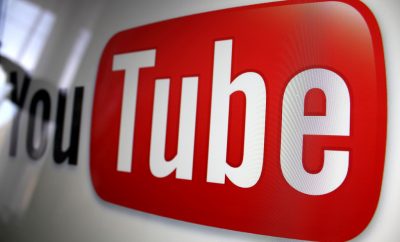
News
Neutral No More: How One Court Ruling Could Affect Everyone who Uses the Internet
In the “Age of the Internet,” consumers expect to have access to any information they want, as fast as possible, with little charge. But a recent court ruling against the Federal Communications Commission could allow Internet Service Providers to explore options that may alter the level of access, and possibly the price point, at which consumers have access to web content.
Internet Service Providers (ISPs) act as “go between” for consumers and the content they want on the Internet. Companies like Verizon, AT&T, and Comcast, are the means, which we use to access the web. Until a few days ago, these ISPs were subject to a series of regulations from the FCC. But on January 14th, the US Court of Appeals in DC shot down these regulations. As a result, many are worried consumers are at risk.
The concept of “net neutrality” contends that consumers should have equal access to all content on the Internet, and that no content should be discriminated against, or unfairly promoted. In theory, this applies to governments, as well as companies with the ability to control web content.
In order to better protect consumers from potentially unfair business practices, the Federal Communications Commission (FCC) set out a list of three guidelines in 2010 that all ISPs had to follow. These included transparency, no blocking, and no unreasonable discrimination. All ISPs had to follow the rules, and as a result of the regulations, consumers couldn’t be charged differently based on what sites they visited, and no websites could be purposefully hindered from loading as fast as others, among other things. Some people saw these as a win for consumer protection, while others thought it was an infringement on the rights of the ISPs, and web businesses that were not able to promote themselves.
But Verizon, a large ISP, sued the FCC, saying it had overstepped its bounds in trying to control ISPs to this extent. And earlier this week, the US Court of Appeals in D.C. agreed with Verizon, saying the FCC could no longer dictate such strict stipulations for ISPs. With these regulations out the window, people have begun analyzing tactics ISPs could theoretically use to boost business, while potentially harming consumers.
One possibility would be allowing websites to pay the ISP more for faster service. While this is good for large companies that have the money to pay off a corporation like Verizon, it could be disastrous for small businesses that don’t have the same resources.
A second tactic ISPs could use is to charge customers extra for accessing certain websites. One Reddit user created an infographic signaling the potential for price increases users could see simply for accessing popular websites. Hypothetically, ISPs could upcharge users frequenting video hosting sites (like Netflix and Hulu). Or, the ISPs could charge those companies higher prices, threatening to slow the website down, or remove it altogether, should they refuse to pay. The companies would have to defray those costs somehow, probably through by charging the consumer more.
Finally, and most drastically, ISPs could just block certain content all together. While certain businesses, like Au Bon Pain, have allegedly blocked content either directly or through obscenity filters, ISPs could dictate what content would not be allowed as part of their service. Unless a consumer wanted to switch their ISP altogether, he or she would be at a loss in this situation.
But is all of this hype warranted? Not necessarily. While a few specific provisions of the FCC were struck down, the Commission didn’t lose all of its regulating muscle.
In the opinion filed by Judge Tatel, the court points out one of the specific reasons these regulations were deemed inappropriate: “given that the Commission has chosen to classify broadband providers in a manner that exempts them from treatment as common carriers, the Communications Act expressly prohibits the Commission from nonetheless regulating them as such” (Verizon v. FCC). This means that if the FCC chooses to change how it classifies ISPs, it may be able to impose restrictions on them once again. Additionally, the FCC has reportedly considered appealing the ruling.
We also have to look into what is in the best interest of the ISP. Consider the fact consumers can choose from several providers. Rather than raise their rates as soon as they can, these ISPs will probably wait to size up what their competition is doing, and then proceed with any price or content changes. There will still be competition among them, and consumers will still be able to choose which provider best matches the content and price point for which they are looking.
So while changes may happen down the road, it’s probably nothing serious enough to warrant binge-watching all 5 seasons of Breaking Bad on Netflix this weekend (unless that was already the plan).
[FCC] [Washington Post] [Court Opinion]
—
Featured Image Courtesy of [Randy Stewart/Stewtopia via Flickr]
Molly Hogan (@molly_hogan13)








Comments